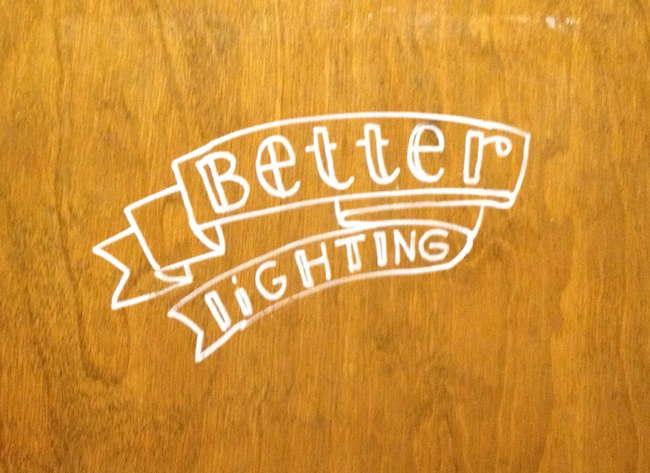The thing about the death of most 87-year-olds is, their heyday is usually long past. The other day Kate was mourning the loss of Ray Manzarek, and I pointed out the Doors stopped making music more than 40 years ago. Acknowledge great work when its maker passes, sure, but don’t soak your pillow with tears. We live in the age of the internet. Everybody’s best work is right here at our fingertips.
Elmore Leonard, though — he’s an exception. At 87, he got a lot more years than our allotted threescore-and-ten, and made them count. He was working, and writing exceptionally well, until the very end. I don’t think “Raylan,” “Djibouti” or “Road Dogs” (his last three novels) belong in his very top rank, but they were still better than 90 percent of the crime fiction published today, still very entertaining reads. If I’m doing work like this past my 80th birthday, I will die happy.
Leonard has been dead less than 24 hours, and already I’m tired of reading his 10 tips for writing, which is a good lesson, but if you really want to learn how to write, just read his books. Figure out how he does it.
In “Unknown Man #89,” a process server is looking for a man and thinks he may have found his wife. She’s an alcoholic, drinking the afternoon away at he Good Times Bar in the Cass Corridor in Detroit. (Just those details alone — the name of the bar and the neighborhood — tells you something, at least if you’re a Detroiter.) See the way he captures a drunk’s speech patterns, how they laugh at their own jokes and go off on their little verbal jags. Less observant writers make it all about slurring. Later on, he sets up a showdown at a bar, deep in a black neighborhood, called Watts Club Mozambique. It’s midafternoon, hardly anyone in the place, when the shit starts to go down:
The manager and the lady bartender, in the pen of the U-shaped bar, standing by the cash register, didn’t move. It it wasn’t a robbery, they assumed it was dope business. The employee in the cloakroom stood by the counter of the hall door. No one in the place screamed; no one said a thing.
You go to work in a place called Watts Club Mozambique, you know how these things play out.
A friend of mine, an English professor, says that when the historians of the future want to know how we lived, the details of our daily lives, they’ll turn to the genre novelists to tell us. They will find a deep vein in Leonard’s work. Take “52 Pickup,” a great slice of ’70s life in Detroit. It’s about an extortion attempt on a successful businessman who’s been having an affair. He runs an auto supplier in Mount Clemens, lives in Bloomfield Village. The girlfriend was in on it, and has turned over some home movies to the two guys running the deal, one of whom is showing him the spliced-together film of him on the Bahamian beach with her, narrating the action:
“Here comes sport now, rum collins for the broad and a Heineken. Loaded and he still drinks beer. That’s your background showing, man. Eleven years on the line at Dodge Main. Couple of shots and a beer every day after the shift, right?”
Loaded and he still drinks beer. Perfect. You can learn more about white-collar and blue-collar lives, and how they intersected in Detroit, from that novel than any dissertation on class boundaries in the Wayne State library.
There’s more, there’s so much more, but I don’t have time to pull down every book and transcribe long passages. I do want to hit some bullet points, though:
** He wrote great female characters, not the way women write them, but the way a man who likes women does. I interviewed him once, and commented on it. He said, “I don’t think of them as women. I think of them as people.” Quick, read “The Switch,” published in 1978, before Hollywood pollutes it forever.
** His villains are great, too. I’m with Matt Zoller Seitz:
His books were tough, but his heart was warm. He liked people. He felt for them. He was able to see through their eyes, no matter how naive or cruel or dumb or scared they were. He didn’t seem to believe in evil, only in stupidity: meaning, you have to be stupid, or stupidly selfish, to be evil. Most of his villains are pathetic and deluded. He never wrote a Hannibal Lecter or Tom Ripley. No masterminds, no puppet masters, no Corleone-style crime lords. His criminals were criminals because they were too dumb or greedy to do anything else, or because they’d fallen into crime a long time ago and never got out. Maybe they were lazy. Maybe they had bad luck. Whatever the explanation, Leonard understood it, even if he didn’t condone it. He believed in free will, but he also had compassion. He got it.
** Speaking of Hollywood. For a writer best-known for his great dialogue, filmmakers hardly ever got his material right. Leonard told the story many times of how he coached Barry Sonnenfeld on how to direct his characters in “Get Shorty,” which many acknowledge as the first adaptation to be worthy of the source material. He told Sonnenfeld no reaction shots, medium shots only and tell your actors that they are saying funny things, but their characters don’t know they’re funny. Personally, I think “Get Shorty” is overrated as an adaptation; it can’t hold a candle to “Out of Sight,” which to this day remains my favorite EL movie, my favorite Detroit movie and my favorite George Clooney movie — the actor was just emerging as a heavy-duty movie star but didn’t act like it and (more important) director Steven Soderbergh didn’t shoot him like one. Can we also say that Soderbergh achieved the miracle of a fine performance out of Jennifer Lopez? Because he did. Her wardrobe in that movie was killer, too. Favorite scene:
And though “Out of Sight” is my No. 1, “Jackie Brown” was also very good. After that, it mostly sucks. Some profoundly so. “Freaky Deaky,” shot in Detroit two summers ago, went straight to video and who can be surprised, when it was uprooted out of its time period and cast with standouts like Crispin Glover? “Killshot” did even worse; thanks, Mickey Rourke and …Joseph Gordon-Levitt? As the bad guy?
** Leonard was refreshingly bullshit-free. About pretty much everything. He always told the truth about writing, anyway. Besides the 10 rules, mainly you just have to sit down every day and do it.
So, I have some links for you:
First and best of all, the Detroit News, bless ’em, re-ran a 1978 piece by the man himself, a deep embed with a Detroit homicide squad. It’s great:
Five a.m. on Terry Street, Detroit’s Northwest side. The fire equipment had left the scene. The gutted two-story colonial stood empty, with its door open, windows smashed, the smell of wet ashes filling its darkness, a faint sound of water dripping in the basement. Someone said the woman found down there, lying on a bed, had been “iced.” A curious verb to use. The woman had burned to death, or had been beaten to death with a blunt instrument. The fire had been started to destroy evidence.
Dick Newcomb, Executive Sergeant of Squad 7, came out of the house with his foot-and-a-half-long flashlight and a photo album of smiling high school graduates in red caps and gowns.
One of them, a 17-year-old girl named Michelle, was at that moment in intensive care at Mount Carmel. She had been found unconscious — severely beaten and bleeding from deep lacerations – in an abandoned house several doors north of the burned-out colonial.
“You can go in if you want,” Newcomb said, “but you’ll smell of smoke all day, have to have your suit cleaned.”
While we’re at the News, a seven-year-old piece by columnist Neal Rubin on EL’s relationship with Woodward Avenue, the city’s spine and east-west dividing line. Again, very good but maybe of less interest outside of Detroit.
A five-year-old profile by Neely Tucker at the WashPost.
Glenn Kenny, to whom I link because lots of you probably don’t know about him. A film blogger, but an appreciator of prose as well. I had to laugh because Abel Ferrara agrees with me about “Get Shorty:”
He rolled his eyes. “God. So studio-ized. Every time they shoot Travolta from a low angle they’ve got the fucking key light giving him a halo.”
I laugh because Ferrara was fired midway through a p.o.s. movie a friend of mine worked on here, and achieved the remarkable feat of being banned from every single restaurant in the Book Cadillac hotel in something like 10 days. And Kenny takes a look at a typical paragraph of EL text, and explains why it’s good.
Here’s an audio piece I did years ago, for WDET, a version of the blog I linked to yesterday. My takeaway: I hate the sound of my own voice.
Finally, the Onion. Because.
Have a good Wednesday, all.




